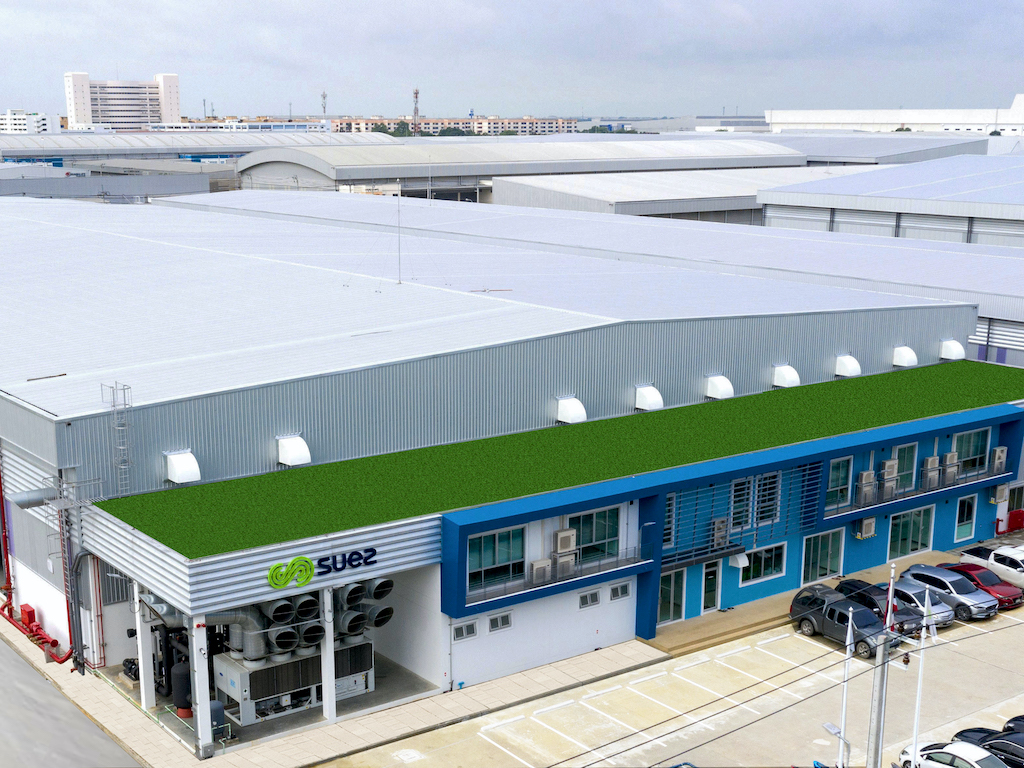3 Mins Read
Suez, the French waste and water management multinational company, has opened its first plastic recycling plant in Asia. Located in Thailand, the plant will be able to convert 30,000 tonnes of plastic packaging waste into post-consumer recycled plastics. It marks a significant development in the region’s recycling infrastructure to tackle the increasingly severe plastic pollution crisis.
Opened in early December, the new Circular Polymer Plant located in Bang Phli, Thailand marks Paris-based Suez Group’s first recycling factory in Asia. The plant will be able to process 30,000 tonnes of plastic packaging, turning it into post-consumer recycled (PCR) plastics and boasts a water-reuse rate of 94% – one of the highest within the country.
By recycling plastics and reducing the need to use virgin petroleum-based materials to produce new plastics, Suez says that the new Thailand facility will be able to save as much as 35,000 tonnes of greenhouse gas emissions each year, on top of providing a solution to the mounting plastic waste crisis.
“We are excited to open the Group’s first plastic recycling facility outside of Europe that will help encourage Southeast Asia to transform towards a circular economy and reverse the tidal wave of plastic pollution crisis,” said Steve Clark, CEO of Suez Asia.
The specific plastics that the facility is able to process includes low-density polyethylene (LDPE) and linear low-density polyethylene (LLDPE) plastic, two types of materials that are often used to make plastic bags, bottles, tubing, pouches, plastic wrap – items that are designed for single-use applications and are considered relatively difficult to recycle.
We are excited to open the Group’s first plastic recycling facility outside of Europe that will help encourage Southeast Asia to transform towards a circular economy and reverse the tidal wave of plastic pollution crisis.
Steve Clark, CEO, Suez Asia
Producing just one tonne of recycled plastic from used plastic packaging materials equates to saving 5 barrels of oil, but recycling rates are notoriously low in the Southeast Asian region, where countries lack the infrastructure and are grappling with enormous waste imports ever since China enacted a ban on them in 2018.
Overwhelming amounts of plastic pollution has even driven local communities in Java, Indonesia to begin burning toxic plastic as fuel – a process harming the health of communities and spews pollution into the air.
In Thailand, only around 25% of its 2 million tonnes of plastic waste is being recycled each year. Suez says that it hopes to be able to “rethink the ways we use and treat plastic”.
“While plastic brings convenience to our everyday lives, it comes with the alarming consequence of millions of tonnes of waste in our oceans, resulting in adverse environmental impact and health effects as well as resultant economic losses,” said Clark.
Globally, there must be a greater emphasis on tackling the plastic crisis on all fronts, given the sobering statistic that the world will still be battling 710 million tonnes of plastic waste even if we curb use by 80%. Experts say it will require a dramatic shift in our production and consumption, including going beyond recycling to bringing in new sustainable solutions to replace single-use plastics and fostering a mass shift towards circular and reusable options.
Lead image courtesy of Suez.




